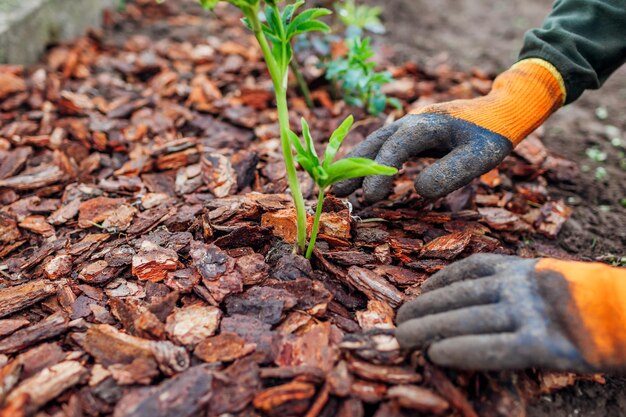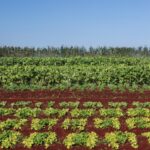Organic mulching is an essential practice that can significantly enhance soil health, improve crop yields, and promote sustainable farming in South Africa. By using natural materials to cover the soil, farmers can create a protective barrier that offers numerous benefits to their crops and the environment. Here’s a comprehensive guide on how to effectively implement organic mulching on your farm.
What is Organic Mulching?
Organic mulching involves applying a layer of organic materials, such as grass clippings, straw, wood chips, leaves, or compost, to the soil surface around plants. This technique serves to retain moisture, suppress weeds, regulate soil temperature, and improve soil structure as the mulch breaks down.
Benefits of Organic Mulching
- Moisture Retention: Organic mulches help to retain soil moisture by reducing evaporation. This is particularly crucial in South Africa, where water scarcity can be a significant challenge. A well-mulched garden requires less frequent watering, which can save farmers both time and resources.
- Weed Suppression: By covering the soil, organic mulches prevent sunlight from reaching weed seeds, thereby reducing their growth. This minimizes competition for nutrients and water, allowing crops to thrive without the added labor of weeding.
- Soil Temperature Regulation: Mulching helps maintain a stable soil temperature. In hot weather, it keeps the soil cooler, protecting plant roots from extreme heat. Conversely, during colder months, mulch acts as insulation, protecting plants from frost damage.
- Soil Fertility Improvement: As organic mulch decomposes, it adds valuable nutrients to the soil, enhancing its fertility. This is vital for long-term soil health and productivity. Additionally, the microbial activity stimulated by organic matter can improve nutrient cycling.
- Erosion Control: Mulching helps to protect the soil from erosion caused by wind and water. By maintaining a protective layer, farmers can prevent soil degradation and maintain the integrity of their land.
Best Practices for Organic Mulching
- Choosing the Right Material: Select organic materials that are locally available and suitable for your specific crops. Common options include straw, grass clippings, wood chips, and shredded leaves. Avoid using materials that may contain weed seeds or diseases.
- Applying the Right Thickness: A mulch layer of 5 to 10 centimeters is typically effective. Too thin a layer may not suppress weeds effectively, while too thick can hinder water penetration and air circulation.
- Timing of Application: Apply mulch after planting when the soil has warmed up. This helps protect young plants and retains moisture during their critical growth stages.
- Maintenance: Regularly check the mulch layer for decomposition and replenish it as needed. Over time, organic materials will break down, necessitating fresh applications to maintain effectiveness.
- Crop Rotation and Diversity: Integrate mulching with crop rotation and diversity to enhance soil health. Different crops can benefit from various mulch types, promoting a balanced ecosystem.
Challenges and Considerations
While organic mulching has many benefits, farmers should be aware of potential challenges:
- Pest Attraction: Certain mulch materials may attract pests. Monitor crops regularly and take action if pest populations rise.
- Disease Management: Ensure that mulch is free from diseases. Use well-composted materials to minimize this risk.
- Labor and Resource Requirements: Initial setup and ongoing maintenance may require additional labor and resources, so plan accordingly.
Organic mulching is a practical and effective method for South African farmers to enhance soil health, improve crop resilience, and promote sustainable farming practices. By implementing mulching techniques tailored to specific conditions and crops, farmers can create a thriving agricultural environment that benefits both their yields and the ecosystem. Embracing organic mulching not only leads to healthier soils but also contributes to the overall sustainability of South African agriculture.
Join 'Farmers Mag' WhatsApp Channel
Get the latest Farming news and tips delivered straight to your WhatsApp
CLICK HERE TO JOIN






